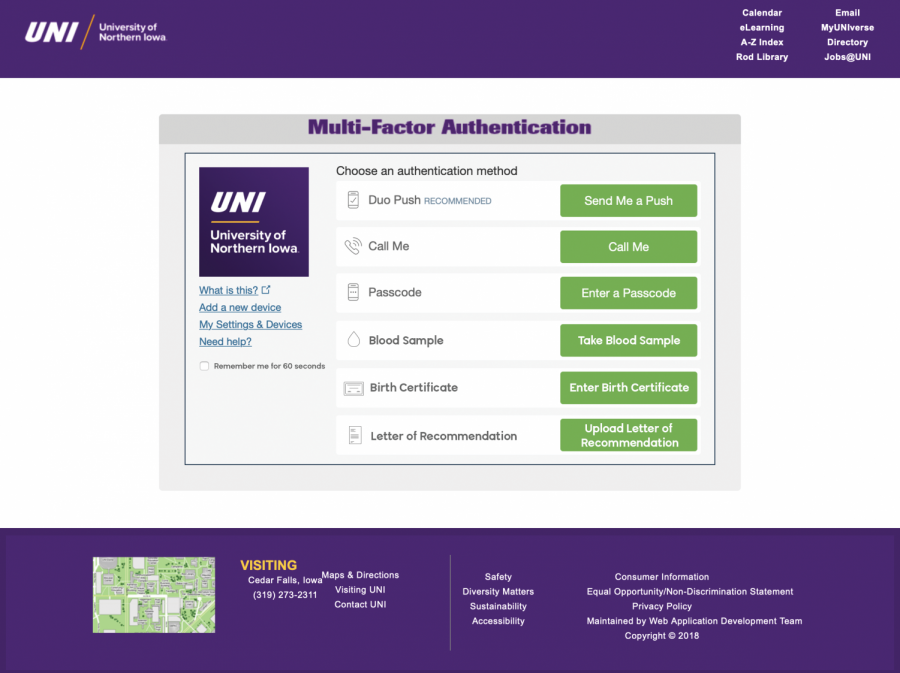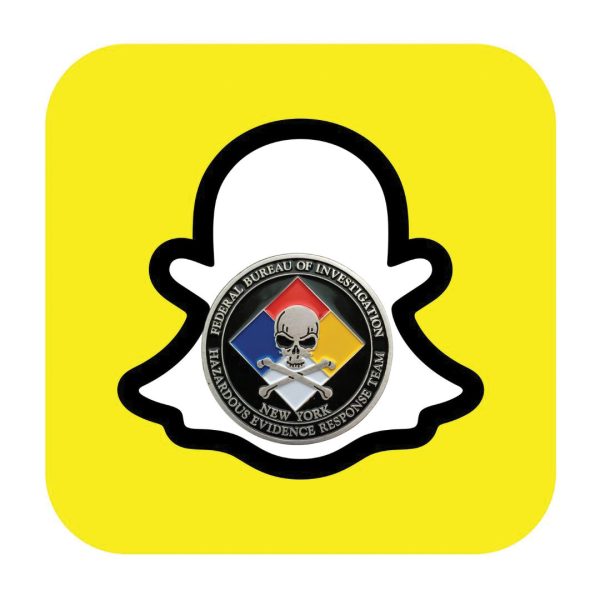As if dual-factor isn’t enough, more steps added
We’re not sure how they’re going to collect the blood samples, and we’re also not sure we want to know.
Apr 1, 2021
This article is completely satire, any resemblance to any real person is completely coincidental. The statements in the french fry do not reflect the views of the Northern Iowan, nor do they reflect the views of the advertisers outside of this insert.
Following the recent implementation of a dual-factor authentication process to log in to UNI email, MyUNIverse and other university-related websites, the university has announced that even more steps will be necessary to log in in the fall.
Currently, students and staff must either “send a push” via Duo Mobile, call the phone number provided or a text message to prove the identity of whoever is logging in.
Beginning in fall 2021, however, logging in will require students to complete three out of six available options. In addition to the Duo Mobile push, phone call or text message, the three new options include providing a birth certificate, blood sample and official letter of recommendation.
UNI president Mike Gnook said, “We felt that the dual-factor authentication was a step in the right direction, and these new requirements will help us keep the campus community even more cyber-safe.”
Students will be asked to vary the options they choose, not using the same option twice in a row, and, if they select the letter of recommendation, must upload a new file each time. Only Pages files will be accepted, not PDF, Word, and “certainly not Google Docs,” according to a university announcement.
Students expressed their frustration with the already tedious dual-factor process and lamented that the new requirements will further interrupt their day.
“My phone is almost always dead from Snapchatting and watching TikTok before class,” said one freshman student who wished to remain anonymous. “Dual-factor is hard enough. Now where the heck am I supposed to get a blood sample or letter of recommendation? I mean, none of my professors even know who I am because dual-factor keeps us so anonymous.”
As if the multi-step process weren’t bad enough, students already struggle with the requirements for their CatID passphrase. Augusta Wind, a senior at UNI, said she is running out of passwords to use. Her current password is 27 characters long and has three different pet’s names in it.
A staff member, Lisa Panther, said, “I forget my password or do one wrong keystroke and have to start all over. Then the dual-factor shows up and I am ready to leave work before the day has even started. Now they’re telling me they’re adding more steps?”
Not all students were opposed to the new measures, however. One student, Sam Puckett, said they enjoyed the dual-factor authentication. Sam said they enjoy taking their phone out for this step because it isn’t as obvious when they are checking notifications from various social media websites during class.
When talking with TC and TK, they both voiced their concern for using a phone because their paws are too big for the average phone. They have submitted a formal letter to Apple and Google requesting much larger phones. They have not heard back at this time, and they continue to tweet to both companies in the hopes of getting their attention.


















